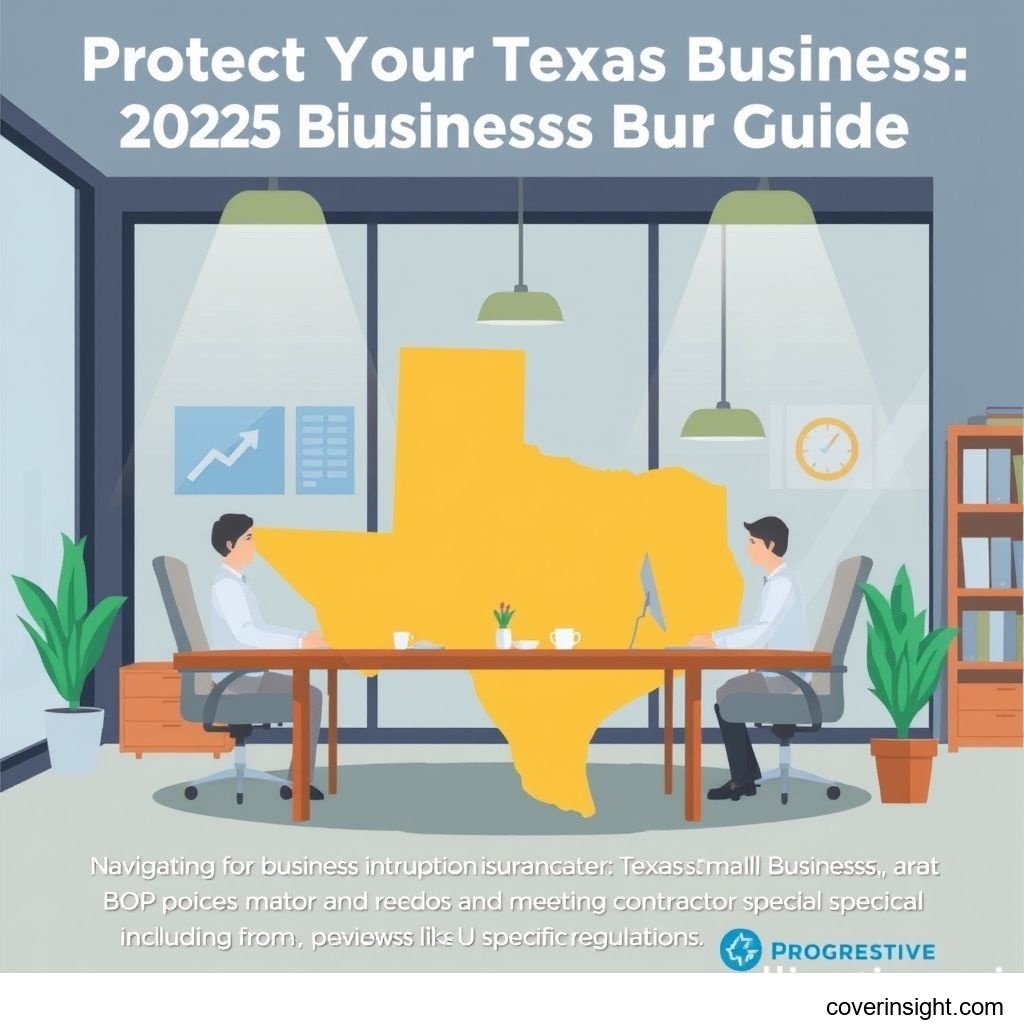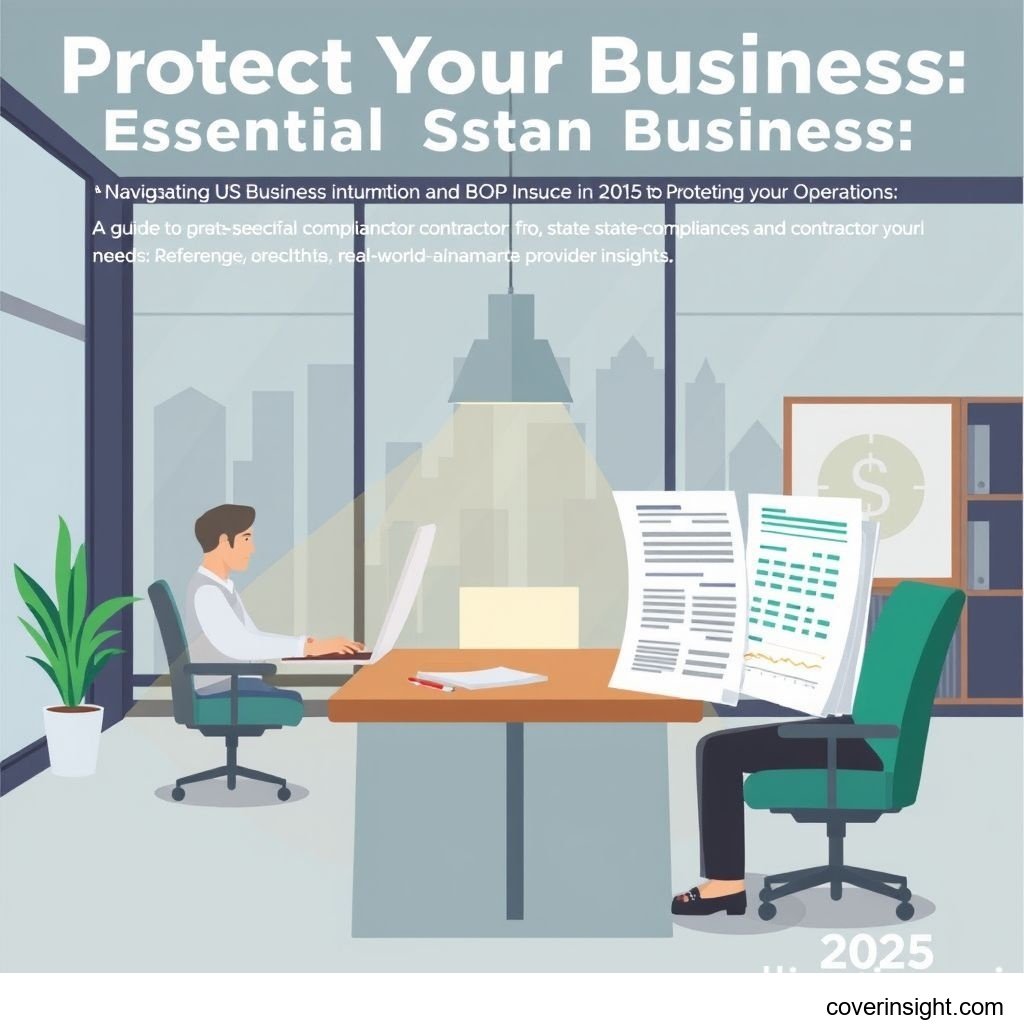Protect Your Texas Business: 2025 Business Interruption Guide
Introduction
In the dynamic landscape of 2025, safeguarding your Texas business against unforeseen disruptions is more crucial than ever. Business interruption insurance, often overlooked, stands as a vital lifeline for companies across the United States. It's designed to cover lost income and operating expenses when a business is forced to close temporarily due to a covered peril, like a fire, storm, or other property damage. For Texas enterprises, where weather extremes can hit hard and fast, understanding and securing this type of coverage isn't just smart—it’s often the difference between riding out a crisis and shutting your doors for good. Protecting your business means preparing for the unexpected, ensuring that even when operations halt, your financial stability doesn't.
Coverage Details
What’s Included
Typically, business interruption insurance policies are designed to replace lost net income that your business would have earned had the disruption not occurred. This isn't just about revenue; it also covers ongoing operating expenses that continue even when your business is temporarily closed. Think about payroll for key employees, rent or mortgage payments, loan installments, and taxes – these bills don't stop just because your doors are shut.
Many policies also cover "extra expenses" incurred to minimize the shutdown period or resume operations quickly. This could include the cost of renting a temporary location, moving equipment, or even advertising to inform customers about your new temporary address. For instance, after Hurricane Harvey in 2017, many Houston-area small businesses, from diners to auto repair shops, relied on this coverage to pay their continuing bills and relocate temporarily while their primary premises were repaired. Without it, many would have simply collapsed under the weight of ongoing expenses and zero income. This type of coverage is often triggered by damage to your physical property that is covered under your standard property insurance policy.
Common Exclusions
While business interruption insurance is a powerful tool, it’s essential to understand its limitations. Common exclusions often include damages caused by floods or earthquakes, unless specifically added as an endorsement. Government-mandated closures due to non-physical damage events, like some pandemics, have historically been a point of contention and are often excluded unless a specific communicable disease endorsement is purchased. Losses due to utility failures, unless the failure originates on your premises, or losses from "soft perils" like market changes, economic downturns, or supply chain disruptions (without direct physical damage) are also typically not covered. Furthermore, damages resulting from war, nuclear hazard, or intentional acts by the policyholder are universally excluded. It's always best to review the policy fine print to ensure you’re not caught off guard.
Cost Analysis
Price Factors
The cost of business interruption insurance isn't a one-size-fits-all figure; it depends on a multitude of factors, much like a good BBQ joint's pricing depends on the cut of meat and the fixings. Key determinants include your business's location (higher risk areas like coastal Texas might see higher premiums due to hurricane exposure), industry type (a high-risk manufacturing plant will pay more than a low-risk consultancy), annual revenue, the chosen coverage limits, and the deductible amount. The more robust your coverage and the lower your deductible, the higher your premium will likely be. Additionally, the length of the indemnity period – how long the policy will pay out benefits – significantly impacts the cost.
Saving Tips
When it comes to cutting costs on your business interruption policy, there are several savvy strategies Texas businesses can employ. Firstly, implementing robust risk mitigation measures, such as advanced sprinkler systems, hurricane-resistant building materials, or comprehensive disaster preparedness plans, can make your business a lower risk in the eyes of insurers, potentially leading to discounts. Secondly, opting for a higher deductible can lower your premium, though it means you'll pay more out-of-pocket before coverage kicks in. Lastly, bundling your business interruption policy with other commercial insurance, like general liability or property insurance, often results in multi-policy discounts. Engaging with a local insurance agent who understands the Texas market can also help you find the most competitive rates and tailor a policy that fits your specific needs and budget, helping you navigate the sometimes murky waters of insurance. For a broader perspective on insurance options, you might explore "Insurance Resources Global" or visit "US Insurance Home" for more information.
FAQs
-
How much does business interruption insurance cost?
There's no fixed price. Costs vary widely based on factors like your business type, location, revenue, chosen coverage limits, and deductible. Small businesses might pay anywhere from a few hundred to a couple of thousand dollars annually, while larger enterprises with higher risks could pay significantly more.
-
What affects premiums?
Premiums are primarily affected by your business's revenue, industry risk, location (e.g., proximity to coastal hurricane zones), the length of the indemnity period, the chosen deductible, and any specific endorsements added to the policy.
-
Is it mandatory?
No, business interruption insurance is not legally mandatory in Texas or most other states. However, many commercial property insurance policies bundle it, and some lenders may require it as a condition for a business loan. It's advisable for nearly all businesses, regardless of size, given the financial risks of unexpected closures.
-
How to choose?
Choosing the right policy involves assessing your business's potential for lost income and ongoing expenses during a shutdown. Work with a reputable insurance agent who understands your business operations and local risks. Consider the indemnity period (how long you need coverage to last), the coverage limits, and what perils are covered versus excluded. Consulting resources like the "National Association of Insurance Commissioners" can also provide valuable guidance on making informed insurance decisions.
-
Consequences of no coverage?
Without business interruption insurance, a temporary closure due to a covered event can be financially devastating. You would be solely responsible for all lost income and continuing expenses (payroll, rent, utilities, etc.) with no revenue coming in. This often leads to severe cash flow problems, layoffs, accumulating debt, and, ultimately, permanent business closure. According to data from the Texas Department of Insurance, many businesses that lacked this crucial coverage struggled significantly or failed entirely after major disaster events, highlighting its critical role in recovery and resilience.
Author Insight & Experience
Based on my experience working with businesses across the Lone Star State, and as someone who has seen firsthand the resilience—and sometimes the heartbreak—of Texas entrepreneurs, I can tell you this: planning for the worst truly does allow you to hope for the best. While no one wants to think about their business grinding to a halt, having business interruption insurance in place is like having a sturdy umbrella when the skies open up. It won't stop the rain, but it will keep you from getting drenched. It’s a foundational piece of a comprehensive risk management strategy, allowing you to focus on rebuilding rather than drowning in financial stress. And speaking of comprehensive, protecting your business also means looking after your people; exploring resources like "Healthcare.gov" or reaching out to "State Insurance Departments" for broader advice on employee benefits can further strengthen your business's foundation.








Comments